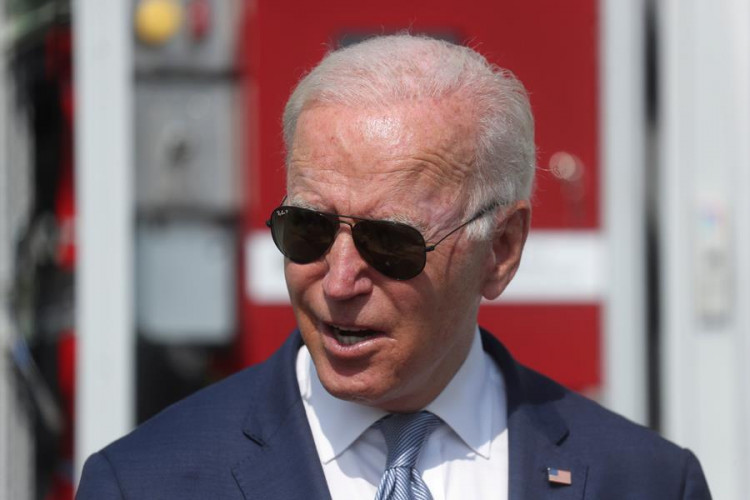The road to diplomacy is steep, but the stakes are high.
In 2020, former U.S. President Donald Trump brokered the normalization of relations between Israel and countries such as the United Arab Emirates, Bahrain, Morocco, and Sudan, marking one of the significant foreign policy achievements of his term.
Now, ahead of the 2024 presidential elections, President Joe Biden aims to clinch an even bigger diplomatic win: the normalization of ties between Saudi Arabia, a heavyweight in the Arab world, and Israel.
Over the past few months, U.S. officials, including National Security Advisor Sullivan and Secretary of State Blinken, have held discussions with Saudi Crown Prince Mohammed bin Salman concerning Saudi-Israel normalization.
American media outlets, including The Wall Street Journal, have been tracking these developments. Reports suggesting the U.S. and Saudi Arabia were nearing an agreement even provided a boost to the Israeli stock market. On August 9th, the Israeli shekel appreciated by 1% against the dollar, and the country's benchmark stock index increased by 1.4%. This positive news contrasted with recent nationwide protests in Israel sparked by controversial judicial reforms, which saw stocks plummet.
However, U.S. authorities later clarified that an agreement with Saudi Arabia had not yet been reached and negotiations would continue for some time.
Based on leaked negotiation details, meeting the key demands of the U.S., Saudi Arabia, and Israel remains challenging. One of the U.S. conditions for Saudi Arabia involves reducing its ties with China and maintaining a distance from the Asian superpower.
A spokesperson for the U.S. National Security Council, addressing media queries, highlighted that recent reports had overstated the progress of U.S.-Saudi talks. He emphasized that no consensus had been reached on the framework for Saudi-Israeli normalization or other security matters in the Middle East. However, he reiterated the U.S. government's commitment to advancing these negotiations.
Reports from Bloomberg, The Wall Street Journal, and Financial Times suggest that Saudi Arabia has tabled three main demands: assistance in developing civilian nuclear technology, expanded weapons exports, and U.S. support in the event of an attack. For Israel, Saudi Arabia is pushing for the establishment of a Palestinian state. The Saudis had previously signaled that the establishment of a Palestinian state would be a prerequisite for any agreement with Israel.
In return, the U.S. wants Saudi Arabia to distance itself from China both economically and militarily. Insiders revealed that the U.S. has asked Saudi Arabia to ensure that they won't allow China to establish military bases in the kingdom, to restrict the use of Huawei technology, and to conduct oil transactions with China in dollars rather than yuan.
Israel has not yet participated in the U.S.-Saudi discussions. Tzachi Hanegbi, Israel's National Security Advisor, mentioned they are awaiting a comprehensive plan from the U.S. on Saudi-Israeli normalization, expecting to receive a draft by year's end.
Accepting all of Saudi Arabia's conditions is a tall order for both the U.S. and Israel. Saudi Arabia's request for assistance in developing civilian nuclear technology alarms Israel, the only nuclear-armed nation in the Middle East. An armed Saudi Arabia could challenge Israel's nuclear advantage. Saudi Arabia's requests for more extensive U.S. weapons exports and support in case of an attack could also meet resistance in the U.S. Congress, especially given the past controversies surrounding the Saudi Crown Prince.
Even if Saudi Arabia weren't the buyer, U.S. arms sales come with concerns. A key concession made by Trump to normalize UAE-Israel relations was an agreement to sell F-35 jets to the UAE. Though the deal was worth $23 billion for 50 F-35s and 18 MQ-9 Reaper drones, it hit a snag when the UAE voiced concerns about restrictive conditions imposed by the U.S. aimed at preventing China from accessing the jet technology.
Regarding the U.S. demand for Saudi Arabia to distance itself from China, Saudi Investment Minister Khalid Al-Falih highlighted in a June interview with CNBC that Saudi Arabia sees China as a key partner in a multipolar world, expecting ties to only strengthen.
Apart from the challenges posed by U.S. and Saudi demands, Saudi Arabia's push for Israel to support a Palestinian state is far from the current Israeli political landscape.
In last year's elections, Israeli Prime Minister Netanyahu's coalition incorporated numerous far-right parties, forming the most right-wing government in Israel's history. The Israeli government has intensified its actions against Palestinian militants. Despite these challenges, Netanyahu remains optimistic about improving Saudi-Israeli ties, suggesting that even without formal diplomatic relations, the two nations could enhance their economic and commercial collaboration.
Given the complexities of Saudi-Israeli normalization, Brian Katulis, Vice President of Policy Studies at the Washington-based Middle East Institute, likened the U.S.-Saudi talks to "scaling several Mount Everests." He believes all parties will need to exert tremendous effort to ensure they don't "fall off a cliff."





